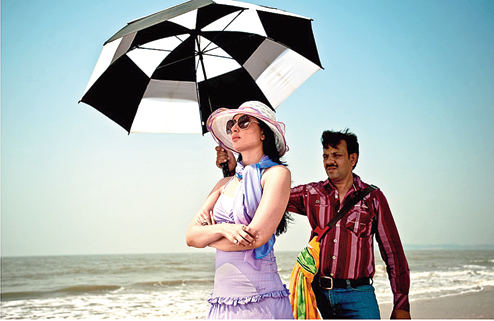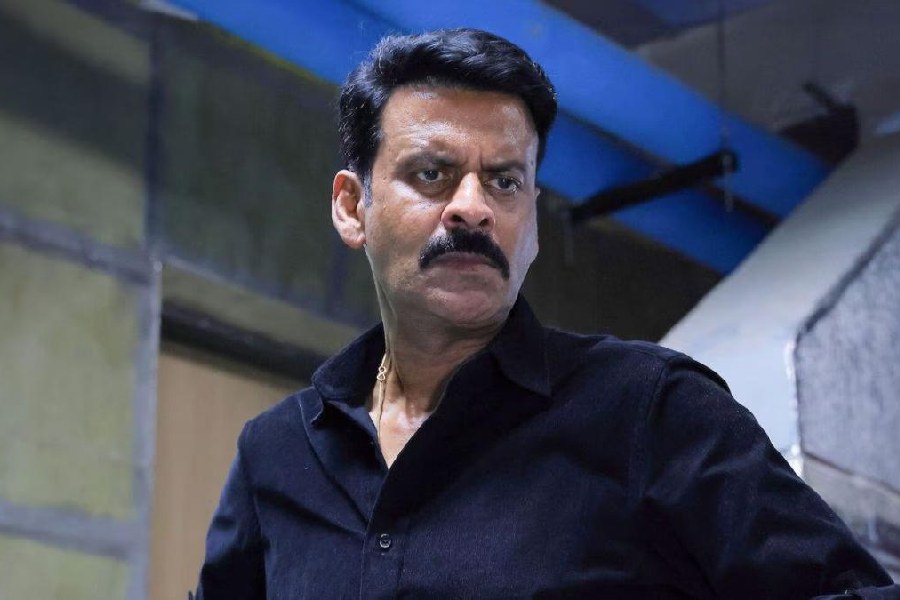
If there is one hero who has emerged in Bollywood in the last decade, it is the small town girl.
Jab We Met (2007) was the early bird, with Kareena Kapoor’s character Geet Dhillon, a free spirit chatterbox who runs away from her family in Bhatinda. Since then the Bollywood screen has been littered with rebels, runaways, radicals, all young girls from towns or places not on your map, the most notable of this growing tribe being Kangana Ranaut.
It’s not a coincidence that Kangana is a small town girl herself — the most famous resident of Bhambla, in Himachal Pradesh — and embodies the very aspiration that drives the small town heroines on screen. When she first arrived in Bollywood, she was laughed at, bullied and made to suffer for her battered English and brazen clothes. But she has made it today, and boldly defends the choices she has made in her professional and personal lives. The girls on the screen want to get there.

Be it in terms of choosing a life partner, or a career, or sex. Kangana’s character Tanu from Kanpur in Tanu Weds Manu (2011) does wed Manu from London, but not before subjecting him to an epic rejection process. Here we are also tempted to talk about Kangana in Queen (2014), the girl who battling with English embarks on a world tour, though strictly speaking, she is from New Delhi and not a smalltowner. But sometimes New Delhi is a small town.
In 2015, the success of Tanu Weds Manu prompted a sequel: Tanu Weds Manu Returns.

The small town itself has been the centrestage for mainstream Hindi cinema for quite some time, but the young girl comes of age in the era of globalisation and technology. Their twin effects create dreams that are equal everywhere. And the most deprived dream the most.
So in Udta Punjab (2016), Alia Bhatt’s character is a nameless Bihari migrant girl who works as a labourer in a Punjab agricultural farm which is also a drugland. Called Bauria in the fields, the girl had once wanted to play national level hockey.

Hockey may not be a coincidence. One thing has demonstrably changed in real life about the girls: sports, and cinema is reflecting that. In Mary Kom (2014), Priyanka Chopra played the Olympic champion boxer from the Kom tribe in Manipur.

At Rio Olympics, the girls outshone the boys. Soon enough, came Aamir Khan’s Dangal, based on the real life story of former wrestler Mahavir Singh Phogat (played by Aamir) brutally training his two adolescent daughters in Balali village in Haryana to become champion wrestlers.

The same year saw Pink, the story of three girls in predatory Delhi for whom a night of fun turns into a nightmare. The film about these girls, more out-of-towners than smalltowners as such, sought to define something that is important, a woman’s consent in sex, within or without marriage. Things are changing.
This year we have had Badrinath Ki Dulhania, in which Alia — she is getting good at it — plays Vaidehi Trivedi from Jhansi, who dumps her family and her country bumpkin lover Varun Dhawan, to become an airhostess. Now there’s Secret Superstar, from Aamir again, in which a young teenager from a Gujarati Muslim family in Vadodara, makes it to stardom despite a violent, oppressive father. Thanks to a powerful, supportive man.

If there is one fault with the films, it is that in the end they often have patriarchy revealing its benign face and saving the day: a good judge, a stern father, a maverick musician. But this year’s Lipstick Under My Burkha, about four women in Bhopal, revises that. A brilliant black comedy, it leaves the women with disasters. But they will not give up on the red of their lipstick.
Chandrima S. Bhattacharya










